Anyone who knows me can vouch for my passion for costume dramas. The gloomier and more gothic the better. In preparation for the lead up to Jane Eyre (9/9/11) and Wuthering Heights (11/11/11) I've been re-watching some of my favourites. I do bemoan the fact that the same book adaptions are being made, leaving the lesser known, but equally intense novels in the dark. The Tenant of Wildfell Hall is one of the latter. Fortunately, it was translated by the BBC in 1996 into a fantastic adaption, (the BBC made an adaptation in 1968 as well).
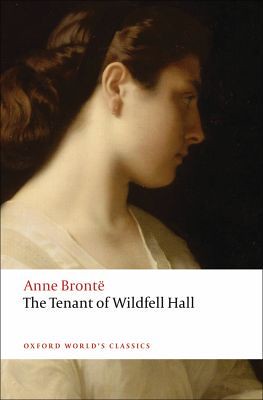
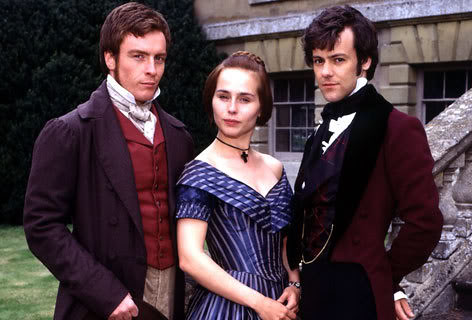
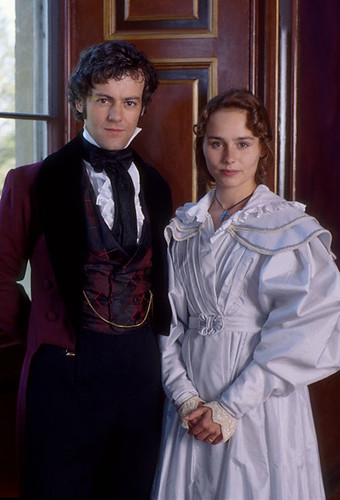
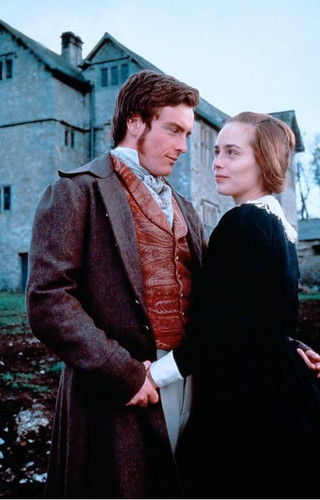
The Tenant of Wildfell Hall is an 1848 novel by Anne Brontë (the third and obscurest Brontë sister) under the pseudonym Acton Bell. It was her second and final novel, after Agnes Grey. It is generally considered the most shocking of the Brontë's novels, it deals with immoral themes of adultery and vice, as well as domestic abuse. The book outsold that of Wuthering Heights, penned by her sister Emily. The book, set in rural Yorkshire, is narrated by Gilbert Markam, neighbour to the mysterious young widow, Helen Graham, who moves into a nearby mansion, Wildfell Hall.
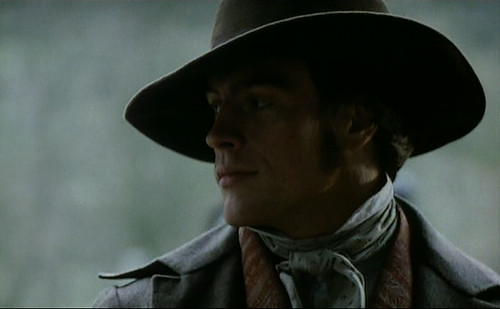
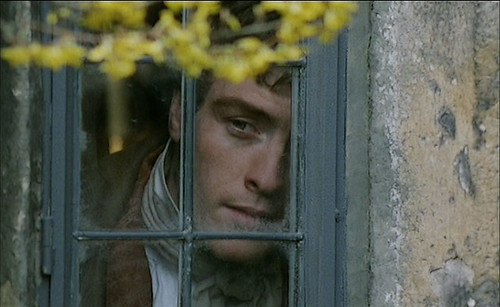
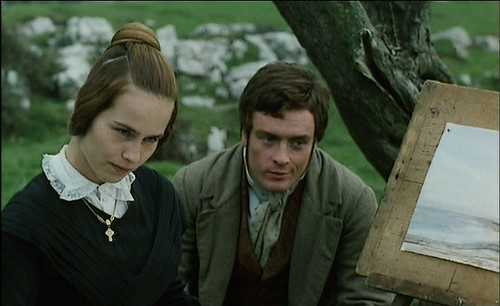
The Tenant of Wildfell Hall is considered to be one of the first feminist novels. it challenged the morals of the Victorian era in Helen's upright refusal to tolerate her husbands abuses, therefore subverting the prescribed gender roles of the time. Helen grasps her own freedom by retreating to Wildfell Hall with her young son, and providing her own meagre income through her art. The neighbourhood gossips and defames her reputation, but Graham refuses to believe these rumours and finds himself falling in love with the cryptic young mother.
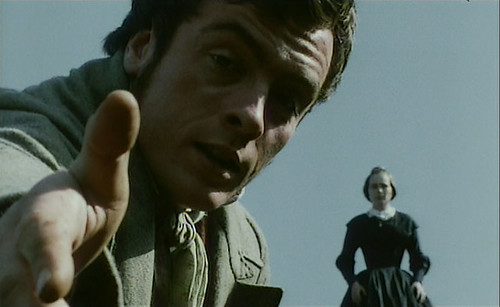
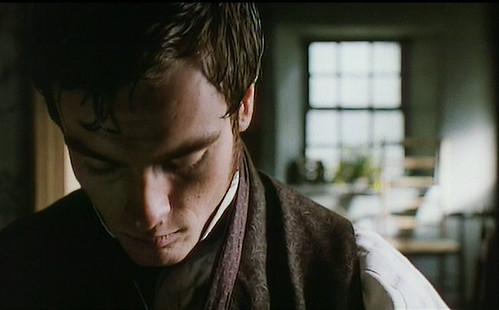
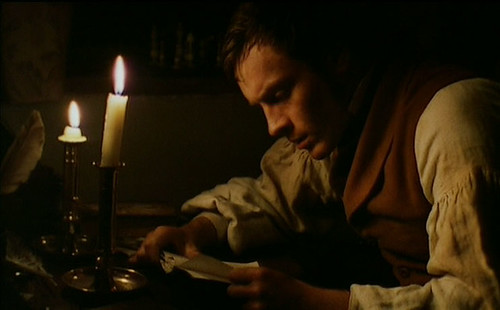
The scope of 1996 adaption is grandiose, sweeping across the foggy moors to inhabiting the darker and moody corners of Helen Graham's home. Rather than being dull the greyness of the composition is crisp and refreshing. We see the characters in sharp contrast and can read their characters well. The setting veers between the crooks and corners of Wildfell and its surroundings to the gaily lit ballrooms described by Helen in correspondence with Gilbert. Most of Gilbert and Helen's encounters happen outdoors, alluding to the freedom Helen craves as opposed to the violence, entrapment and uncomfortable secrecy imposed by the domestic sphere. However Helen can not be wholly free and soon her past catches up with her necessitating her to leave Wildfell, not before communicating the truth of her situation to Gilbert with whom she has formed a romantic attachment.
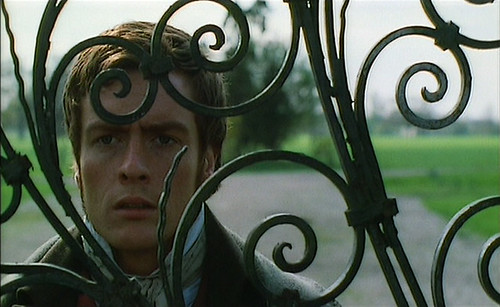
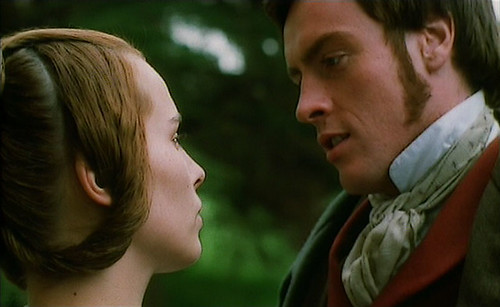
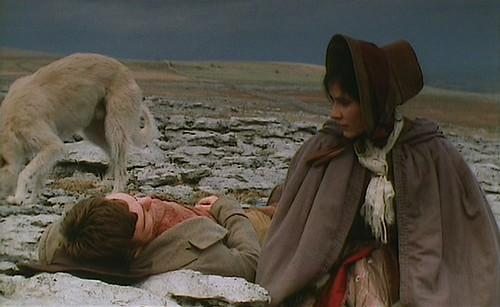
Toby Stephens plays Gilbert Markham, the earnest neighbour. Tara Fitzgerald is in the title role of Helen Graham. Rupert Graves plays the cruel Huntingdon.
I love this adaption because of the feminist subtext, but particularly on an aesthetic level due to lingering shots emphasizing the sparse, craggy quality of the moors, but also the violent camera angles and jolts, adding to the savage atmosphere at times. The tangible quality of the costumes perfectly fit the characters, particularly when comparing the flashbacks of Helen's optimistic youth to the direness of her situation at Wildlfell. We can see the transition of Helen's youthful frivolity of dress and hair to the more conservative, somewhat stern sensibility of her dress as secretive widower Helen. She holds an impressive crucifix collection it must be said!
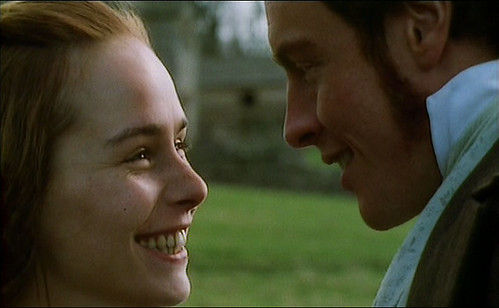
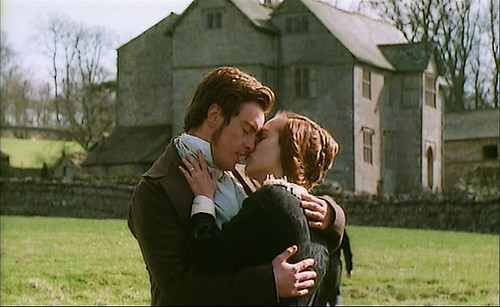
If you can't get your hands on the dvd, you can watch it online here! Don't ever say I don't have your back!
Also, I'm not sure what country of origin this is from, but I don't know if this dvd cover is an accurate representation of the series, lovely shot as it is.
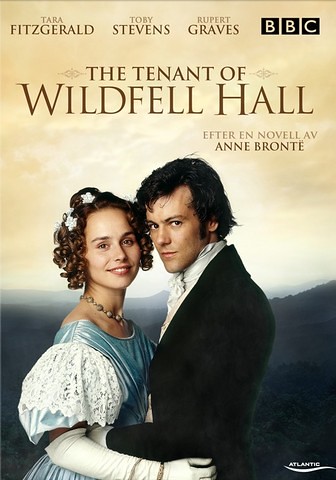

Snap! Lovely post. I agree totally and posted in much the same vein after recently reading the Tenant of Wildfell Hall. The movie did the book justice. I love all 3 mega-famous Bronte books but Wildfell Hall is the most realistic and timeless. Glad I found you :)
ReplyDeleteThank you! Wildfell is under rated!
Delete